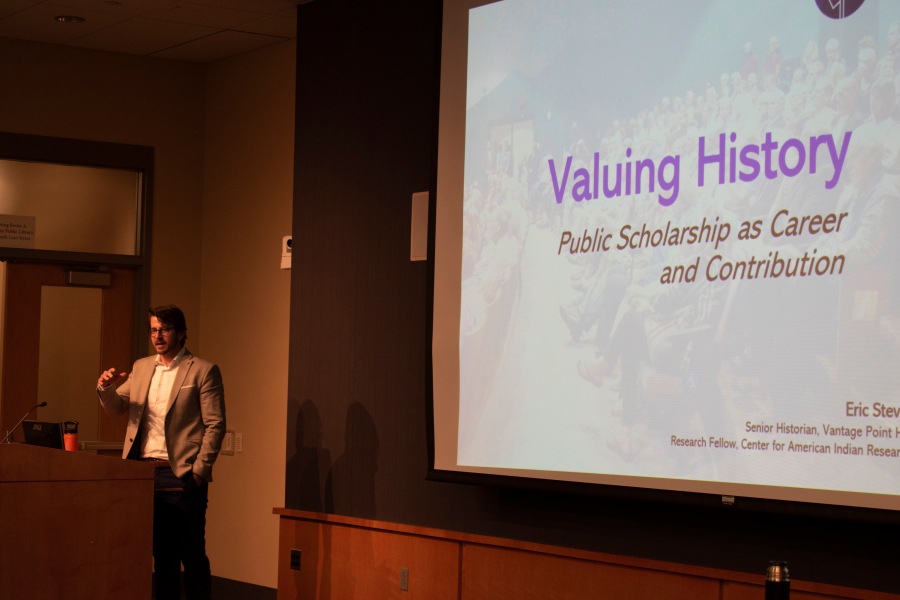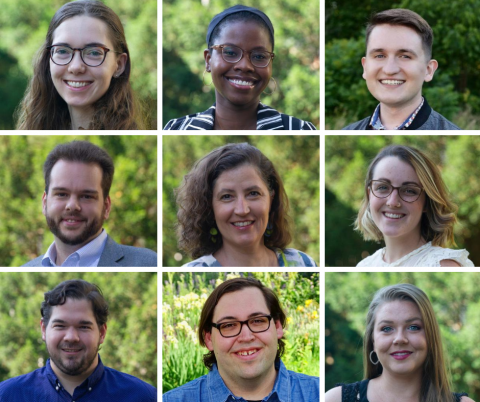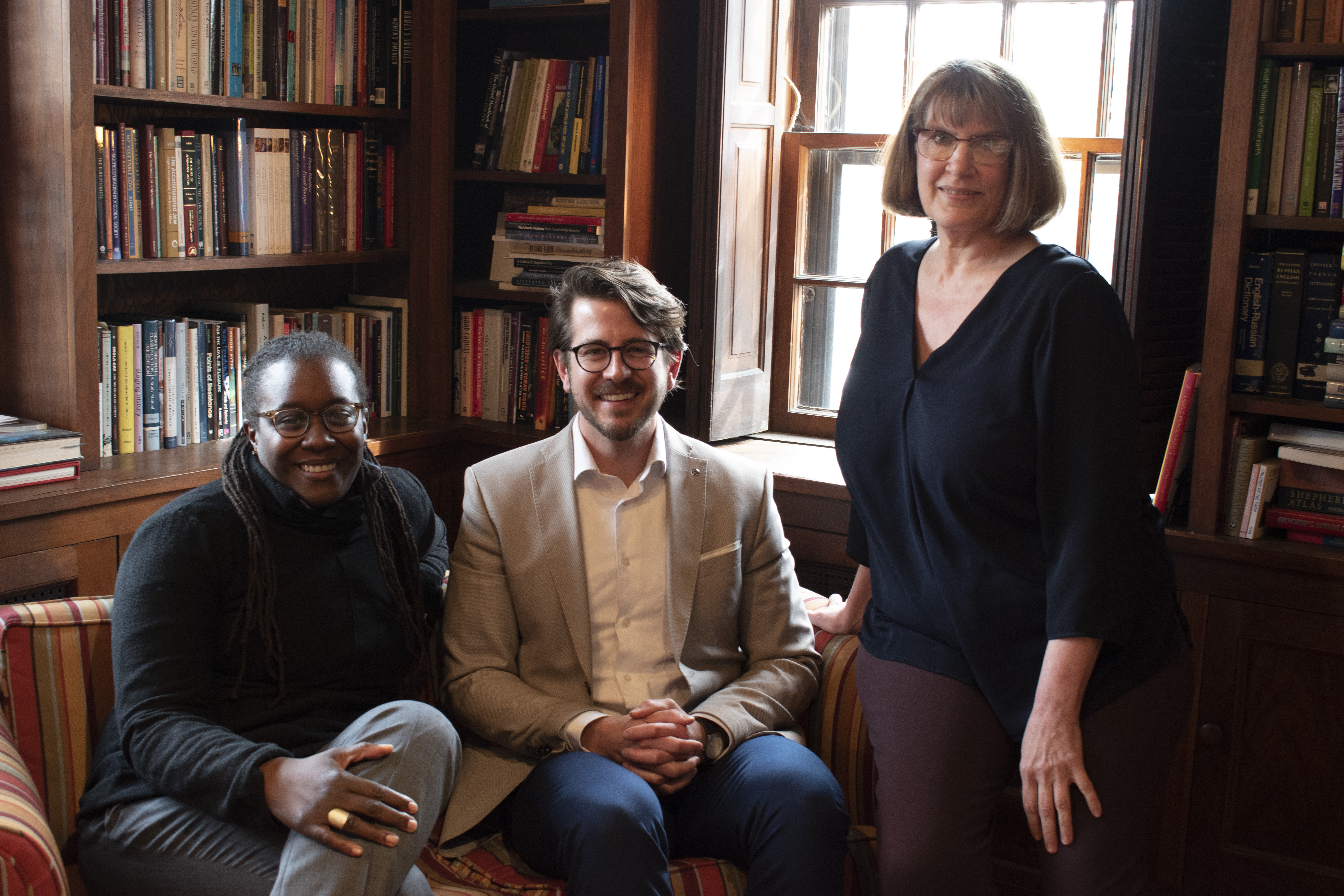The aim of Humanities for the Public Good, the three-year project funded by the Andrew W. Mellon Foundation, is to reimagine the future of the humanities PhD as a community-facing, interdisciplinary opportunity. In concert with our campus partners, the Graduate College and the College of Liberal Arts and Sciences, we had a full year dedicated to collecting ideas, inspiration, resources, and models.
An advisory board of 22 faculty, staff, and graduate students formed working groups that focused on topics such as “The Dissertation” and “Career Exploration.” Their work was informed by visits from UI humanities alumni who are now working in nonprofits, government, business, K–12 education, and colleges and universities (other than R1s)—including the three UI History alumni pictured above: Sylvea Hollis, Eric Zimmer, and Karen Christianson. The three presented at our February 24 event, “Historically Speaking: History PhDs Tell Stories of Working Outside the Academy.” We also hosted presenters from other universities and organizations that are considering the future of graduate education, including the directors of the Modern Language Association and the American History Association. Finally, we hosted a series of informal workshops for graduate students on topics such as networking.

Summer 2020 also saw the second group of Humanities for the Public Good interns working with community partners. The nine students worked virtually—as a result of COVID-19—with Hancher, Public Space One’s Center for Afrofuturist Studies, the UI Labor Center, the National Czech and Slovak Museum, the African American Museum of Iowa, and Iowa Valley Resource Conservation and Development. A full report about their work is available on the HPG website. One site mentor described the experience of working with the interns as “a reminder of the hopefulness that we need to maintain through uncertainty.”
“This internship has helped me recognize the ways my research connects to and affects the present, particularly when this information is accessible to the public.” —Kassie Baron (English), UI Labor Center intern

Humanities for the Public Good Summer Interns. Top row, left to right: Emily Wieder, Dellyssa Edinboro, Matthew Helm. Middle row: Cody Norling, Jennifer Miller, Laura Hayes. Bottom row: Michael Goldberg, Jonathan Lack, Kassie Baron.
